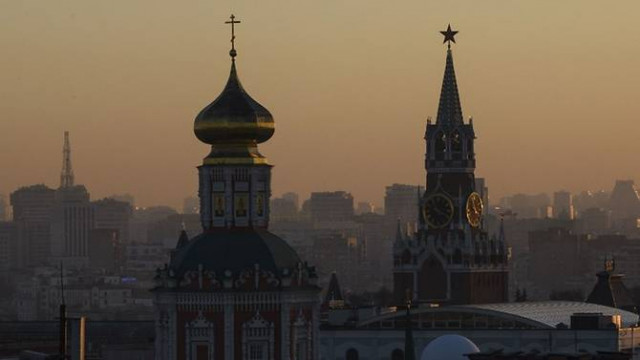Russia poses bigger threat to UK than terror groups: Army chief
London blamed Moscow military intelligence for orchestrating poisoning of ex-Russian spy and his daughter

General Mark Carleton-Smith warned Moscow had shown a willingness to use its military to pursue its national interests while seeking to "exploit Western vulnerabilities".
"Russia today indisputably represents a far greater threat to our national security than Islamic extremist threats such as Al-Qaeda and (IS)," he told The Daily Telegraph.
"Russia has embarked on a systematic effort to explore and exploit Western vulnerabilities, particularly in some of the non-traditional areas of cyber, space, undersea warfare."
Relations between Russia and Britain have sunk to historic lows this year.
UK accuses Russia of 'lies' after Putin's Skripal poisoning denial
London has blamed the country's military intelligence service for orchestrating the poisoning with a nerve agent of ex-Russian spy Sergei Skripal and his daughter Yulia in the English city of Salisbury in March.
The incident prompted a wave of tit-for-tat diplomatic expulsions between Moscow and the West, as well as a ratcheting up of US sanctions.
Carleton-Smith, 54, said following IS battlefield loses in Syria and Iraq, the Western alliance must switch focus to the threat posed by Russia - and do so through NATO.
"The physical manifestation of the militant threat has diminished with the complete destruction of the geography of the so-called Caliphate," he said.
"We cannot be complacent about the threat Russia poses or leave it uncontested.
Britain claims Russian military intelligence behind host of global cyber attacks
"The most important conventional military response to Russia is the continued capabilities and coherence of the NATO alliance."
The former special forces commander was speaking in his first interview since becoming Britain's chief of the general staff in June.
He made the comments after visiting British troops deployed in Estonia as part of a NATO battle group intended to deter aggression from neighbouring Russia.
Carleton-Smith also took the opportunity to downplay the need for a separate European army, as recently encouraged by French President Emmanuel Macron.
"I would not support any initiative that diluted the military effectiveness of NATO," he said.
"NATO represents the fundamental gravity of European security.
"It has been an extraordinarily successful alliance and, in my experience, we should reinforce success."



















COMMENTS
Comments are moderated and generally will be posted if they are on-topic and not abusive.
For more information, please see our Comments FAQ